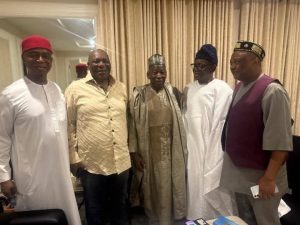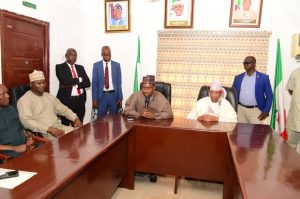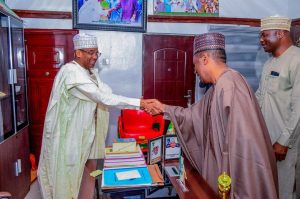News
NLC to IMF: You‘re behind Nigeria’s economic woes

Nigeria Labour Congress, NLC, has dismissed the International Monetary Fund, IMF, denial of any role in Nigeria government’s removal of petrol subsidy and the implementation of other anti-people economic policies, insisting that the body is behind the country’s economic woes.
According to the NLC, the IMF and its cousin in economic mischief – the World Bank remain the twin forces that have a longstanding pattern of recommending harsh and unworkable economic policies to developing nations.
I lost my hands, girlfriend, dad’s landed properties survived depression; but I’m alive’0:00 / 0:00
In a statement yesterday, the President of NLC, Joel Ajaero, urged the World Bank and IMF to remove their knees from our necks so that we can breathe as a nation.
The statement reads: “Nigeria Labour Congress (NLC) believes that it is cynical and indeed typical of the International Monetary Fund’s (IMF) to recently deny responsibility for the Nigerian government’s removal of petroleum subsidy.
“IMF and its cousin in economic mischief – the World Bank remains the twin forces that have longstanding pattern of recommending harsh and unworkable Economic policies to developing nations. In their usual subterfuge, they have continued to present these advisories as growth strategies but which have unfortunately often led to increased socioeconomic hardship and stagnation in Nigeria and other nations that have had the misfortune of drinking their poisoned chalice.
“At a press conference during the IMF and World Bank Annual Meetings in Washington DC, United States, Abebe Selassie, IMF’s African Region Director, described the decision to remove fuel subsidy by Nigeria’s government as a domestic one.
“IMF’s recent statement is a display of subterfuge and evasion. This denial of involvement in Nigeria’s subsidy removal, coupled with the assertion that it was a “domestic decision,” disregards the extensive influence that the IMF wields in policy formation within many developing countries. Despite this assertion, the IMF’s policy dialogues often suggest subsidy cuts as necessary steps toward fiscal sustainability.
“For Nigeria, where successive governments have frequently yielded to these recommendations, the IMF’s disavowal rings hollow, as it underplays the fund’s direct impact on the nation’s economic policies.
“The NLC has become more worried over this denial at this time which is another signpost of the already disturbing policies by the Nigerian government at the behest of the IMF and World Bank and which IMF is now trying to distance itself.
“It shows that the institution is working very hard to stay away from the blame or the backlash that its policy directions will bring in the future. IMF must know that Nigerians are not fools and we are always aware of the destructive influences its awful policy paths for Nigeria and indeed Africa has been.
“It is pretentious and truly too late to begin to deny complicity because we warned the government about the consequences of implementing IMF and World Bank-driven policies.
As IMF and World Bank continue to pretend not to know the apparent obviousness of the social costs of its policy recommendations another layer of concern is added to the entire denial.
“While the IMF acknowledges the “significant social costs involved,” it casually suggests that governments can mitigate these hardships through its idea of expanded social protections which is a system that beggars the people forcing them to dwell on handouts in this case RICE that never gets to the people. The reality in Nigeria has continued to reveal a profound disconnect – subsidy removal and price hikes have pushed essential goods beyond the reach of many, with government-provided social safety nets remaining woefully inadequate.
“This gap between IMF recommendations and the lived experiences of Nigerians highlights a
fundamental and deliberate oversight in the fund’s approach to economic policy.
“In distancing itself from Nigeria’s subsidy removal, the IMF also demonstrates an unsettling inconsistency in its advice to developing nations. It has repeatedly pressured Nigeria to undertake austerity measures, only to distance itself from the results when these recommendations bring hardship to the populace.
“This shifting narrative not only undermines the IMF’s credibility but also raises questions about the sincerity and reliability of its economic prescriptions for third-world nations. The IMF’s insistence that Nigeria is in full control of its economic policies stands in stark contrast to its historical and continued influence, which has often been accompanied by economic turmoil and hardship.
“NLC emphasizes the need for Nigeria and other developing countries to reclaim their economic sovereignty, resisting externally imposed policies that fail to consider local contexts and the needs of the masses.
“The NLC’s stance reflects a broader frustration with the World Bank and IMF’s recurring interventions, which prioritize fiscal metrics over social welfare. By advocating for policies that genuinely benefit Nigerians, we challenge the IMF’s influence and underscore the importance of economic autonomy in building a just, sustainable future.
“This once again is a powerful reminder to our leaders of the impact of international financial institutions on our people and the need to be circumspect in walking their path. “The IMF’s denial of involvement in Nigeria’s subsidy removal rings hollow, considering its decades-long history of recommending
similar austerity measures.
“We hope that our Economic handlers have learnt or are learning the appropriate lessons to sufficiently know that when “shit hits the fan”, IMF and World Bank will wash its hands off and leave the Government carrying the burden and holding the wrong end of the stick. “Nigeria must pursue policies that reflect the real needs of our citizens prioritize economic policies that drive growth, social welfare, and equity, not austerity measures that lead to further economic quagmire and social unrest.
“Once again, we call on the World Bank and IMF to remove their knees from our necks so that we can breathe as a nation. They have become the major problem we have as a nation and we may be forced to soon demand that they leave Nigeria entirely as their policies have continued to undermine our Economy and sabotage the people and the nation.
“IMF should not worry for we know that the Petrol price hike and the Electricity tariff hikes were domestic decisions but we also know that it is a case of “Esau’s Hands but Jacob’s voice”. IMF should not present itself cowardly but should stand up and own up! That is what is called honesty and transparency which is
the bedrock of IMF’s much-vaunted institutional integrity!”
News
Senator Manu donates five operational vehicles to Taraba PDP(Photos)
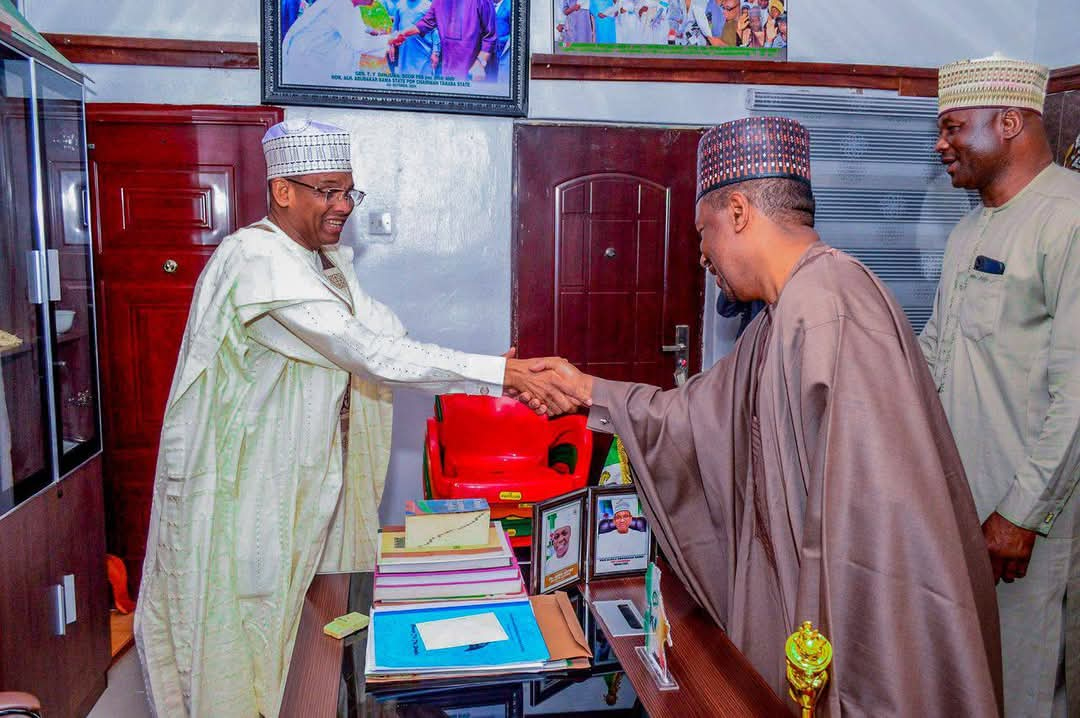
…hails emergence of Bawa as state chairman
The Senator representing Taraba Central Senatorial District Senator Manu Haruna on Sunday donated five operational vehicles to Taraba Peoples Democratic Party, PDP to enhance its operations.
Manu also seized the opportunity to congratulate the state Chairman, Hon Abubakar Bawa when he visited the secretariat in Jalingo last Sunday.
The former State Deputy Governor expressed his congratulations to Chairman Bawa and the state working committee for their election, emphasizing the importance of unity and progress within the party. He commended their commitment to strengthening the People’s Democratic Party (PDP) in Taraba State.
In a generous move to enhance the operational capacity of the party at the grassroots level, Senator Manu donated five vehicles — one for each Local Government Area (LGA) party chapter in Taraba Central.
This donation is intended to facilitate better coordination and outreach efforts within the party.
Senator Manu praised Hon. Abubakar Bawa for his dedicated efforts to elevate the PDP in the state, asserting that Taraba will always remain a stronghold for the party.
In response, State Party Chairman Alhaji Bawa expressed his heartfelt gratitude to Senator Manu for his thoughtful visit and generous donation. He acknowledged the impact of such contributions on the party’s progress and reemphasized the commitment of the PDP to serve the interests of the people in Taraba State.
News
Justice Minister, Fagbemi seeks support for govt’s national law reform initiative
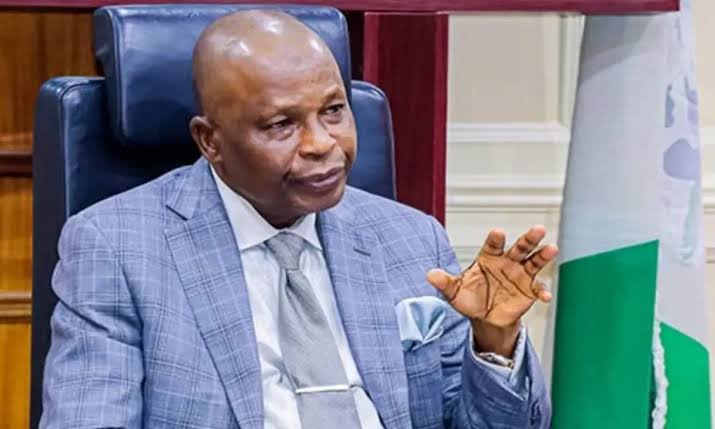
By Francesca Hangeior
The Attorney General of the Federation and Minister of Justice, AGF, Prince Lateef Fagbemi, SAN, has canvassed for greater efforts and commitments to the Federal Government’s aspirations to produce a workable legal framework for the country.
He charged the Committee put in place by the federal government to review, revise and consolidate the Laws of the Federation of Nigeria, LFN, to double the efforts and commitments to deliver on the mandate at the appointed time.
Fagbemi, a Senior Advocate of Nigeria, spoke on Monday in Abuja at the second retreat of the Committee put in place in October last year for the laws of the federation revision and reform.
The AGF while challenging the committee to be up and doing asked the members to remain united in purpose and steadfast in the resolve to produce a legal framework that is worthy of the nation’s aspirations.
He said the second retreat organized by the federal government was a strategic consolidation of the national law reform efforts and to provide an invaluable opportunity to come up with a better workable legal framework for the nation.
“Let me start by expressing gratitude to the Chairman, Co-Chairperson and members of the Committee for their selfless service and sacrifice, to ensure that this project is executed efficiently and effectively.
“The call to be part of this assignment is indeed a sacred that inevitably and positively affects the lives of individuals, government, businesses as well as citizens of this nation.
“The general purpose of law is to regulate human behavior by protecting lives and properties in society. The inauguration of the Committee on the 24th October, 2024 marked a historic milestone in our collective efforts to modernize, consolidate, and harmonize Nigeria’s body of federal statutes.
“The retreat successfully provides a clear framework for the structure and methodology of the revision exercise, oriented the 14 Working Groups tasked with reviewing specific legal subject areas, and fostered collaboration among key institutions and stakeholders on the project.
“Following the initial retreat, I wish to note that the Committee has recorded steady progress in its work.
“The Ministry has taken several measures to ensure that the assignment is delivered efficiently, including:training sessions for secretaries of the working groups to enhance documentation and coordination; technical meetings of the main committee and its various sub-committees; working sessions and deliberations among editors and reviewers; and ongoing technical collation of revised laws by the Secretariat.
“This second retreat is a strategic consolidation of our national law reform efforts and provides an invaluable opportunity to: review progress made since the first phase;
address any technical or structural challenges encountered during the collation process;
– Harmonize the output across working groups; and set the tone for the final stages of this important project.
“The next stage of the law review and consolidation process would include editing and proofreading the reviewed legislation, ahead of the final collation, production and printing of the laws of the federation.
“It is my conviction that these phases will be executed with even greater commitment by the Committee, with the support of stakeholders and development partners.
“I wish to commend the leadership of the LFN Committee, the Secretariat for its diligent coordination and day-to-day management as well as the Working Groups, Editors, and Reviewers, for their intellectual rigour and professionalism.
“Special gratitude to our development partners, particularly RoLAC, for standing firmly behind this national project.
“Let me urge all participants to use this retreat as a platform for robust engagement, peer learning, and practical collaboration.
“We must remain united in purpose and steadfast in our resolve to produce a legal framework that is worthy of our nation’s aspirations.
” I wish to express gratitude for your commitment to duty and I charge you to work in synergy and cooperation, in the overall interest of the nation”, the AGF said.
News
You must refund N300m, Rivers State tells NBA
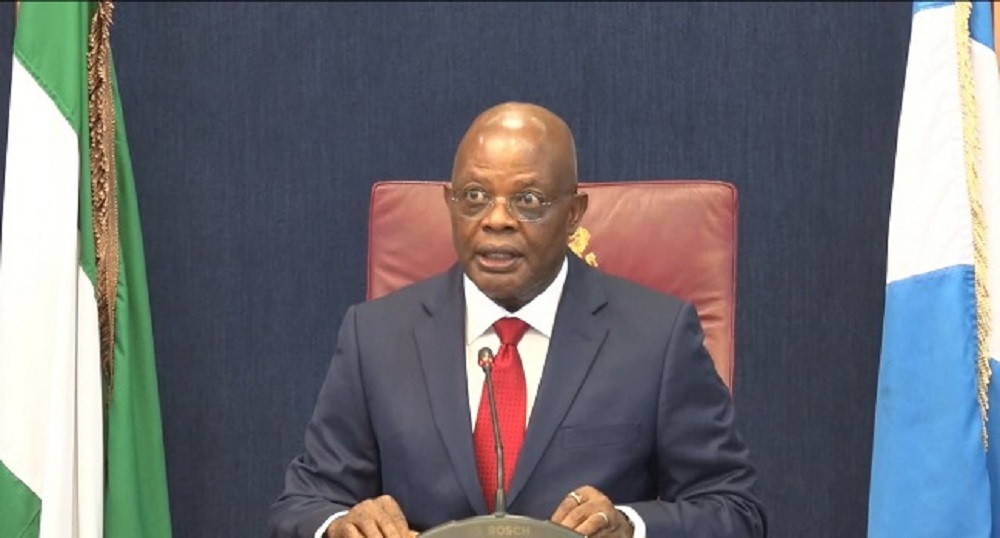
The Rivers State Sole Administrator, Vice Admiral Ibok-Ete Ibas (retd.), has replied to the Nigerian Bar Association regarding the reason for relocating its Annual General Conference from Port Harcourt to Enugu State.
Ibas faulted the reason cited by the NBA, describing it as misleading and uncharitable.
The Sole Administrator stated this in a statement issued in Port Harcourt on Monday by his media aide, Hector Igbikiowubo, and sent to newsmen.
He said while the NBA reserves the right to choose a venue for its conference, the association had yet to address the issue of the refund of the hosting rights paid by the state government for the conference.
The statement partly reads, “While we respect the NBA’s right to choose its conference venues, we find it curious that the association—despite its “principled position”— didn’t address the refund of the N300 million already paid by the Rivers State Government for the hosting rights of the 2025 conference.
“If the NBA truly stands on principle, it should demonstrate the same integrity by promptly returning these funds rather than benefiting from a state it now publicly discredits.”
It added, “The attention of the Rivers State Government has been drawn to the Nigeria Bar Association’s announcement dated 10th April 2025, relocating its 2025 Annual General Conference from Port Harcourt to Enugu.
The statement partly reads, “While we respect the NBA’s right to choose its conference venues, we find it curious that the association—despite its “principled position”— didn’t address the refund of the N300 million already paid by the Rivers State Government for the hosting rights of the 2025 conference.
“If the NBA truly stands on principle, it should demonstrate the same integrity by promptly returning these funds rather than benefiting from a state it now publicly discredits.”
It added, “The attention of the Rivers State Government has been drawn to the Nigeria Bar Association’s announcement dated 10th April 2025, relocating its 2025 Annual General Conference from Port Harcourt to Enugu.
-

 News24 hours ago
News24 hours agoAutonomy: 774 LGs challenge FG, states in court Tuesday
-
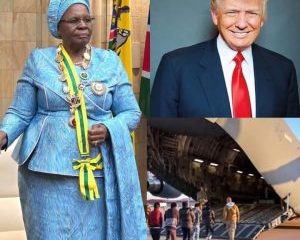
 News17 hours ago
News17 hours agoJust in: Namibia Moves to Deport Over 500 Americans in Bold Visa Policy Shift
-

 News17 hours ago
News17 hours agoRivers women rally in support of state of emergency
-

 News12 hours ago
News12 hours agoYou must refund N300m, Rivers State tells NBA
-
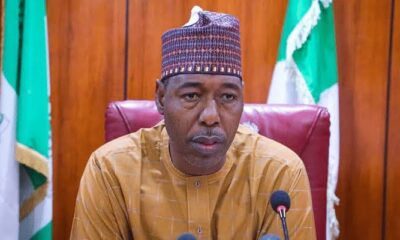
 News23 hours ago
News23 hours agoZulum orders arrest, offers house, scholarship to abused boy in viral video
-

 Politics15 hours ago
Politics15 hours agoBwala accuses Senator Ndume of plans to defect from APC
-
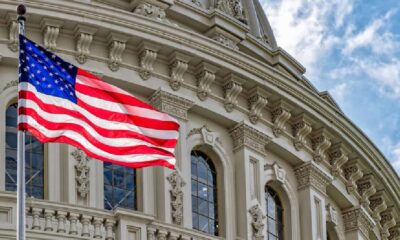
 Foreign12 hours ago
Foreign12 hours agoUS orders 30-day registration for all foreign nationals or face jail, deportation
-

 News17 hours ago
News17 hours agoSoldiers rescue 16 kidnapped passengers in Plateau


